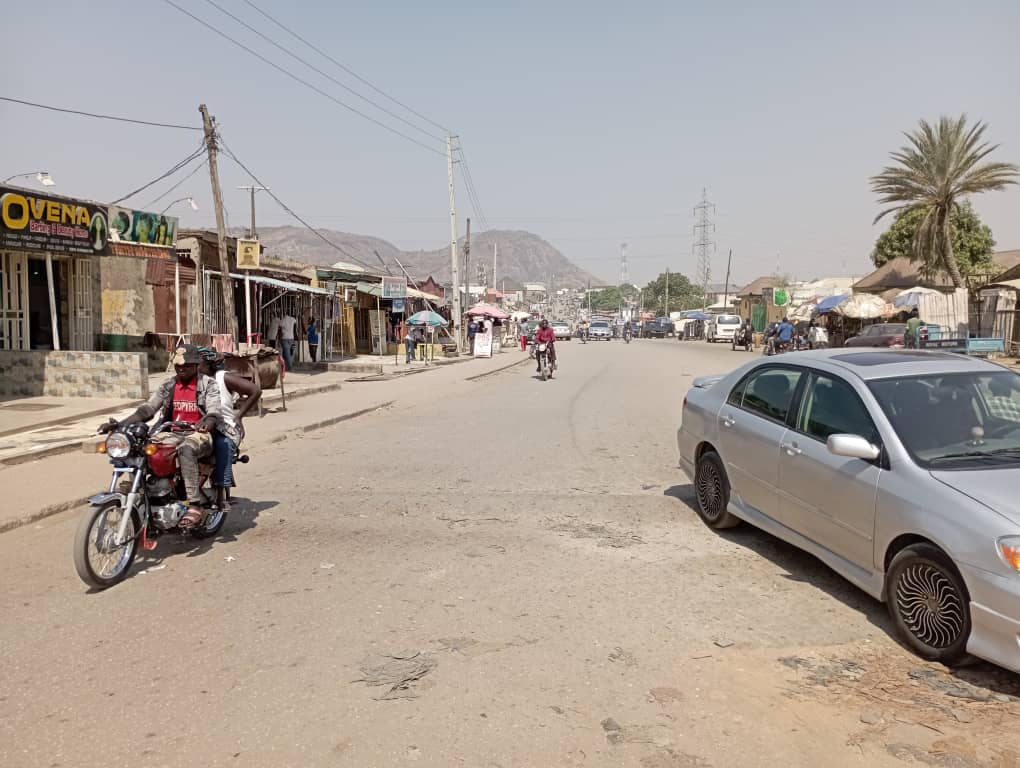Chopping Down the Future: Treeless Cities and the Deforestation Crisis in Urban Areas
Deforestation and lack of tree planting pose significant threats to Nigeria’s environment, health, and economy. Trees provide oxygen, support wildlife, and regulate climate, but their absence exacerbates air pollution, soil erosion, and flooding, underscoring the need for urgent action and sustainable solutions.
In this report for LightRay!, Precious Nwonu investigates the state of treeless urban centres in Nigeria.
Deforestation is the process of cutting down or clearing large areas of forests, often to make way for farming, construction, or other human activities. Trees are essential because they provide oxygen, store carbon dioxide, and support wildlife by offering food and shelter. However, when forests are cleared, these benefits are lost.
For example, many forests are cleared for agriculture, where trees are replaced with crops or cattle grazing lands. Other times, forests are cut down to obtain wood for construction or paper products. While this might help human industries in the short term, deforestation causes serious harm to the environment, such as disrupting the water cycle, increasing greenhouse gases, and speeding up climate change.
One major problem caused by deforestation is the loss of biodiversity, which means that plants, animals, and even insects lose their homes. Many species cannot survive without their forest habitats and are at risk of extinction.


The absence of tree planting in Nigeria poses a significant threat to the environment, health, and economy. Trees play a crucial role in maintaining ecological balance by absorbing carbon dioxide and releasing oxygen, essential for human and animal survival. Without trees, air quality deteriorates as pollutants and dust remain unchecked, leading to respiratory diseases and other health problems.
In urban areas like Lagos, Enugu, Edo, Kano, etc., the lack of trees worsens air pollution, making cities hotter and less habitable due to the urban heat island effect. Moreover, trees act as natural shields against noise pollution, and their absence leaves communities exposed to constant noise, reducing the quality of life.
In Lagos, Henry Nelson expressed his concern over deforestation. “No, I don’t like when there are no trees around my environment,” he said, adding that he feels indifferent when there are no trees in his surroundings. He noted that deforestation contributes to climate change, a phenomenon he strongly opposes. For Henry, cutting down trees should be discouraged at all levels as it undermines efforts to combat climate change and maintain ecological balance.
John Sarah Odohoedi, residing in Abuja, shared her love for trees and their benefits. “I love to have trees around my home because of the beauty it gives to the environment and the shade it provides from the sun,” she explained. In contrast, how trees situated at her office were cut down.
She lamented the loss, stating that the environment felt different without them. The trees had previously provided shade for security personnel, enabling them to perform their duties more comfortably. Sarah believes deforestation should be done thoughtfully, targeting only trees that have no economic value. She suggested replacing removed trees with new ones and burning unwanted grasses to enhance the environment’s appearance.
The perspectives shared emphasize the multifaceted value of trees, highlighting their cultural, aesthetic, health, and practical benefits, as well as their vital role in maintaining ecological balance.
In Nigeria today, it has become increasingly rare to find streets or estates lined with trees in many parts of the country. If you walk through urban areas, you’ll notice that trees are either completely absent or very few in number. Unfortunately, even when some trees are present, they often don’t last long; by the time you visit the same place again, many of them have been cut down.
This trend highlights a growing disregard for the environmental and aesthetic value of trees, contributing to the loss of greenery and its numerous benefits in our communities. Deforestation and lack of replanting also contribute to severe environmental degradation.


Nigeria faces issues like soil erosion and desertification, particularly in the northern regions, where advancing deserts reduce arable land for farming. Without trees to hold the soil together, heavy rains wash away nutrients, rendering the land infertile. This leads to reduced agricultural productivity, threatening food security in a country already grappling with hunger.
Furthermore, the loss of tree cover reduces the ability of ecosystems to absorb excess rainfall, increasing the risk of flooding. The devastating floods seen in recent years, which displaced thousands of Nigerians and destroyed property, are partly linked to deforestation and poor reforestation efforts.
In addition to environmental harm, the lack of tree planting affects biodiversity. Forests are home to countless species of plants and animals, and their destruction disrupts ecosystems, pushing many species towards extinction. This loss diminishes Nigeria’s natural heritage and potential for eco-tourism, which could boost the economy.
Trees also contribute to climate regulation, and their absence accelerates global warming effects, including erratic weather patterns and prolonged droughts.
Austin Esechie, the head of his unit at Okomu Oil Palm located in Benin city, explained that the European Union Deforestation Regulation (EUDR) has set rules for exporting goods made from deforested land. According to the regulation, only goods from land deforested before 2020 can be exported to European countries. If the resources come from land cleared after 2020, such goods will not be accepted. This rule aims to promote reduced deforestation and sustainable living.

Community Responses to the Absence of Trees in Their Surroundings
The importance of trees in our environment cannot be overstated. From providing shade to combating climate change, trees play a vital role in maintaining ecological balance and enhancing the quality of life. However, opinions on tree preservation and deforestation vary, as seen from the perspectives of residents across Nigeria.
Onyinyechi Okeychukwu, based in Edo, expressed her preference for having plants in her environment. “I don’t like it when there are no plants in my environment,” she said. Onyinyechi recounted her experience in a tree-filled area where trees were chopped down, leaving her feeling disheartened by the new, barren look. For her, trees are not only important for beautifying the environment but also for contributing to human health. She highlighted the critical role trees play in creating a pleasant and healthy living space.
In Owerri, Echebiri Chukwudi Henry shared his love for trees, stating, “I like trees. They produce oxygen, give shelter, and help reduce air pollution.” He recounted a time when trees were removed from an area he was familiar with, and he felt deeply saddened by the loss. Without the trees, there was no fresh air and no shelter. Echebiri suggested that instead of cutting down all trees, overgrown trees should be removed and replaced with new ones to maintain their environmental benefits while managing their growth effectively.
In Kaduna, Ozinna Ntukogu expressed his dissatisfaction with environments lacking trees. “No, I don’t like when there are no trees in the environment,” he said, reflecting on his experience in a tree-filled area where the trees were cut down, describing how it reminded him of the negative impacts of colonialism and the misguided notions of “modernity” and “development.” Ozinna advocated for protecting the remaining forests and launching nationwide tree-planting campaigns.
In Enugu, Progress Ijomanta shared a different perspective, stating that he is indifferent about the absence of trees in his surroundings. However, he admitted, “When there are trees, to me, it is aesthetically more pleasant.” While he hasn’t personally witnessed trees being chopped down, he noted that the decision to remove trees depends on the reason behind it.
Nigeria has committed to reducing its greenhouse gas emissions under the Paris Agreement, and businesses must comply with emerging climate policies and regulations.





Comments